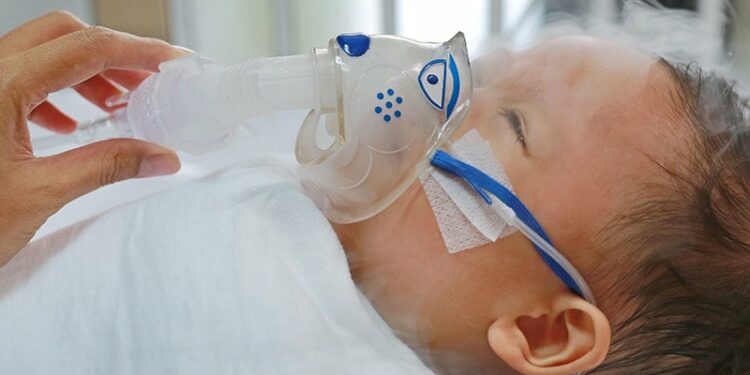[ad_1]
TOPLINE:
Immunisation with nirsevimab reduced bronchiolitis-related hospitalisations among infants younger than 3 months who visited the emergency department (ED), according to a new study. Nirsevimab also reduced respiratory syncytial virus (RSV) positivity and paediatric intensive care unit (PICU) admissions.
METHODOLOGY:
- Researchers conducted a retrospective study across six paediatric EDs in France, including 739 infants younger than 3 months with a clinical diagnosis of bronchiolitis during the 2023-2024 RSV epidemic season.
- The primary outcome was hospitalisation after an ED visit, and the secondary outcomes included PICU admissions and RSV positivity. Subgroup analyses considered prematurity, age groups, and social deprivation, as assessed by the French Deprivation Index.
- The analysis was adjusted for age, sex, centre, visit week, comorbidities, bronchiolitis history, gestational age, and deprivation score.
TAKEAWAY:
- Nirsevimab showed 53.5% adjusted effectiveness in reducing bronchiolitis-related hospitalisations among infants after ED visits (95% CI, 34.1-67.3; P < .001). Hospitalisation rates were 51% in immunised infants and 69% in non-immunised infants.
- Nirsevimab showed 51.1% (95% CI, 10.7-74.3) and 79.6% (95% CI, 68.0-87.1) effectiveness in reducing PICU admissions and RSV positivity, respectively.
- Immunisation showed a consistent protective effect in preterm infants, neonates, and deprived groups, though statistical significance was not reached in smaller subgroups.
IN PRACTICE:
“These findings support the widespread use of nirsevimab to prevent severe respiratory infections caused by RSV in young infants, highlighting its potential to substantially reduce the healthcare burden associated with bronchiolitis,” the authors wrote.
SOURCE:
The study was led by Alexis Marouk, SAMU 93 – SMUR – Emergency Department, Avicenne Hospital, Public Assistance Hospitals Paris, Bobigny, France. It was published online on March 5, 2025, in the European Journal of Pediatrics.
LIMITATIONS:
The study’s observational design limited causal inference, and secondary outcomes were exploratory, with no adjustment for multiple testing. Selection bias may have been present, as only university hospital ED visits were included, limiting generalisability. The study could not assess nirsevimab’s effectiveness in preventing RSV bronchiolitis in ambulatory care. Birth weight — a potential confounder — was not recorded. Additionally, data on nirsevimab status were unavailable for 28% of the infants, potentially introducing bias.
DISCLOSURES:
The study did not receive any specific funding or grant. The authors reported no conflicts of interest.
This article was created using several editorial tools, including AI, as part of the process. Human editors reviewed this content before publication.
[ad_2]
Source link : https://www.medscape.com/viewarticle/nirsevimab-cuts-hospitalisation-risk-infant-bronchiolitis-2025a10005rm?src=rss
Author :
Publish date : 2025-03-12 11:00:00
Copyright for syndicated content belongs to the linked Source.














